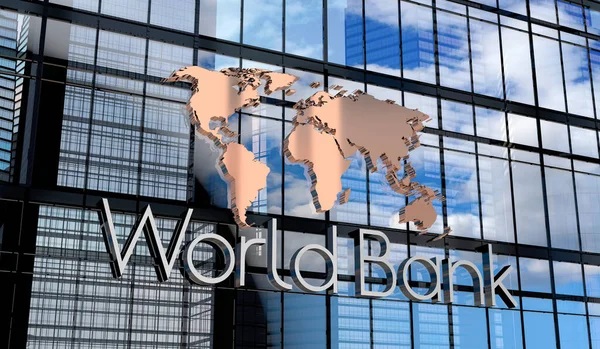The World Bank has sharply downgraded its forecast for global economic growth in 2025, citing intensifying trade frictions and prolonged policy uncertainty as key obstacles to economic recovery.
In its latest Global Economic Prospects report, the Bank predicts global GDP will expand by just 2.3% next year — a marked slowdown and the weakest pace outside of a global recession since 2008.
The revised outlook is nearly 0.5 percentage points lower than previous projections made earlier this year. The report warns that growth has been cut across almost 70% of economies, spanning all continents and income brackets.
While the global economy may avoid a recession, current trends suggest that the 2020s could witness the slowest average growth in more than six decades.
Indermit Gill, the World Bank’s Chief Economist, raised particular alarm about the faltering progress in developing economies. “Outside Asia, the developing world is witnessing alarming stagnation,” he stated. “These regions are slipping into what might be described as a development-free zone.”
The figures tell a troubling story: growth in developing economies has declined steadily — from 6% in the 2000s to under 4% in the current decade. Global trade volumes have also shrunk from an average of 5% growth in the early 2000s to below 3% today. Meanwhile, investment has stalled, and public debt continues to balloon.
Growth across nearly 60% of developing countries is expected to slow further in 2025, settling at an average of 3.8% — a significant decline from past decades. Low-income countries are forecast to grow at 5.3%, still short of earlier expectations.
The report also flagged inflationary pressures, forecasting a global average of 2.9% for 2025. Though below recent highs, this remains elevated compared to the pre-COVID period, driven by sustained trade barriers and labour market tightening in major economies.
With growth in per capita income projected at just 2.9% in the developing world — 1.1 percentage points lower than the long-term average — the Bank warned that efforts to combat poverty and income inequality are at serious risk.
Based on current trends, it could take up to two decades for developing economies (excluding China) to reclaim their pre-pandemic growth path, the Bank stated.
However, the report did offer some glimmers of hope. A de-escalation of trade tensions — particularly a reduction in tariffs — could lift global GDP growth by an additional 0.2 percentage points in 2025 and 2026.
To strengthen resilience, the World Bank encouraged emerging economies to pursue fiscal reform, expand domestic revenue generation, and prioritise investment in vulnerable communities.
The report also called on global leaders to support fragile states through international partnerships, concessional financing, and coordinated development efforts aimed at ensuring inclusive, sustainable growth.





